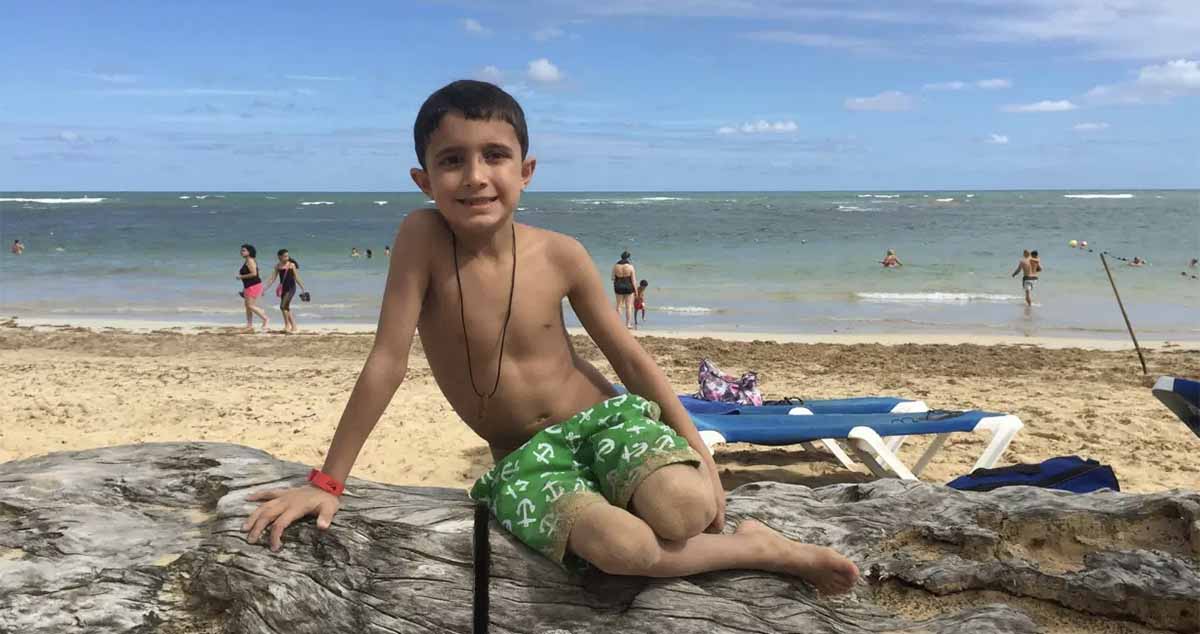Cameron Wahid, a 7-year-old British boy on vacation with his family in the town of Ravello on the Amalfi Coast of Italy, ordered spaghetti from the La Margherita Villa Giuseppina restaurant.
His parents, concerned for Cameron’s severe milk allergy, warned the staff at the restaurant that special care be taken to avoid any contact with milk or dairy. They were assured their son’s dish would be safe.
A short time later, after the family boarded their tour bus, Cameron went into anaphylactic shock and suffered cardiac arrest. His mother Cassandra, a nurse, administered his epinephrine auto-injector, but her son died three days later in a hospital in Naples.
The tomato sauce Cameron had been served was made with milk.
Since then, the family has waged a legal battle with the restaurant.
In 2019, a court in nearby Salerno found waitress Ester Di Lascio guilty of culpable manslaughter for not properly highlighting potential allergic reactions from items on the menu. She received a two-year suspended jail term.
The family was also awarded a £288,000 ($400,000) compensation settlement by the court.
The Wahid family is working to raise awareness of the seriousness of food allergies in Cameron’s memory. The boy’s father, Rizwan, is an ambassador with Allergy UK, a leading allergy non-profit in the United Kingdom.
Said Mr Wahid this week:
Prior to his allergic reaction, we were assured by the waiting staff that the food was safe for him.
To see him going into anaphylactic shock and suffering like that was undoubtedly the worst experience of our lives.
He was such a lovely little boy, and always brightened up our days.
We feel his death was avoidable and we are still struggling to come to terms with him not being here anymore.
We know nothing will bring him back, but we want to help stop others from suffering the pain we continue to feel.
People need to know how serious allergies can be, and we will continue to work in raising much-needed awareness.
We are grateful that the case is now at an end, and want to thank everyone for all the support we have had.
For us, everything has been about using the criminal trial process in Italy to ensure that justice was obtained for Cameron, which we have done, as well as to establish facts and ensure lessons are learned so that others don’t have to suffer like we have.
We at SnackSafely.com had not heard of the tragedy that befell Cameron’s until Mr Wahid spoke out this week.
Our sincerest condolences go out to the family at their unspeakable loss and we hope they are able to find some measure of solace in the work they are doing to raise awareness of the dangers of food allergies.
As we often do when we report on such tragedies, we look for ways similar tragedies might be avoided by others in the food allergy community.
First and foremost, understand that it is difficult to ensure that a meal will be prepared safely when dining locally. That risk is compounded when traveling abroad, especially in a country where English is not the primary language.
Consider avoiding restaurants where your allergens of concern are used in the kitchen when possible. For some allergens, like peanuts or sesame, that may be easier than for others.
When traveling abroad, it is incumbent upon you to make sure your allergen concerns are fully understood and appreciated. Talk to the management, wait staff, and chef and make sure they can communicate back your concerns. If there is a communication gap or you feel the staff is unable or unwilling to accommodate you, leave.
Consider using allergy communication cards in the native language to ensure your concerns are properly conveyed and understood. You will find a number of options online including those from Equal Eats.
As always, make sure you have at least two epinephrine auto-injectors on hand with you at all times and be sure administer one as soon as you first suspect anaphylaxis. Then call emergency services and visit the emergency department regardless of whether or not the patient feels better.
Last but not least, consider mapping out hospitals along your planned route before you embark on your trip. It may sound like overkill, but knowing where to get help and not having to make yourself understood in a foreign country during an emergency can save precious time.
- Family’s heartbreak after boy, 7, dies after eating plate of spaghetti on holiday in Italy — Manchester Evening News
- Boy, 7, died after eating spaghetti on holiday as dad describes “worst day of life” — Sunday Mirror
- Restaurant boss gets two-year suspended sentence after British boy, seven, died from allergic reaction in Italy — Sunday Mirror





